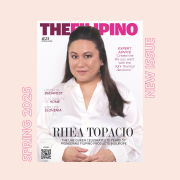Frankfurt’s international vibe and sustainable policy draw many expats to the city. But even here, there is no escaping the German bureaucracy.
If someone had asked me five years ago if I could imagine myself living in Frankfurt, Germany, my straightforward answer would have been no. Back then, I was living in Aachen, a small, far-flung university town located on Germany’s border with Belgium and the Netherlands.
Prior to moving to Germany, I worked for an American finance company’s ESG (Environment, Social and Governance) research team in Manila. I wanted to keep working in the field despite the intercontinental move. After applying for several job postings, I was finally invited to come to Frankfurt for a second round of interviews with my current company. At the time, I had not been to the city yet, and like many other people, only knew the city’s airport while in transit to other German cities.
Arriving at the central train station gave me mixed first impressions of the city- hectic, loud, not-the-cleanest, crowded. But looking up ahead as I came out of the station’s main entrance, Frankfurt greeted me with a nice view of glistening tall buildings and skyscrapers, which is quite unheard of in many German cities.
Frankfurt is not the place you move to because you like it straight away. However, work in certain industries, particularly finance, banking, sustainable investment research, and multinationals have their offices in this big city.
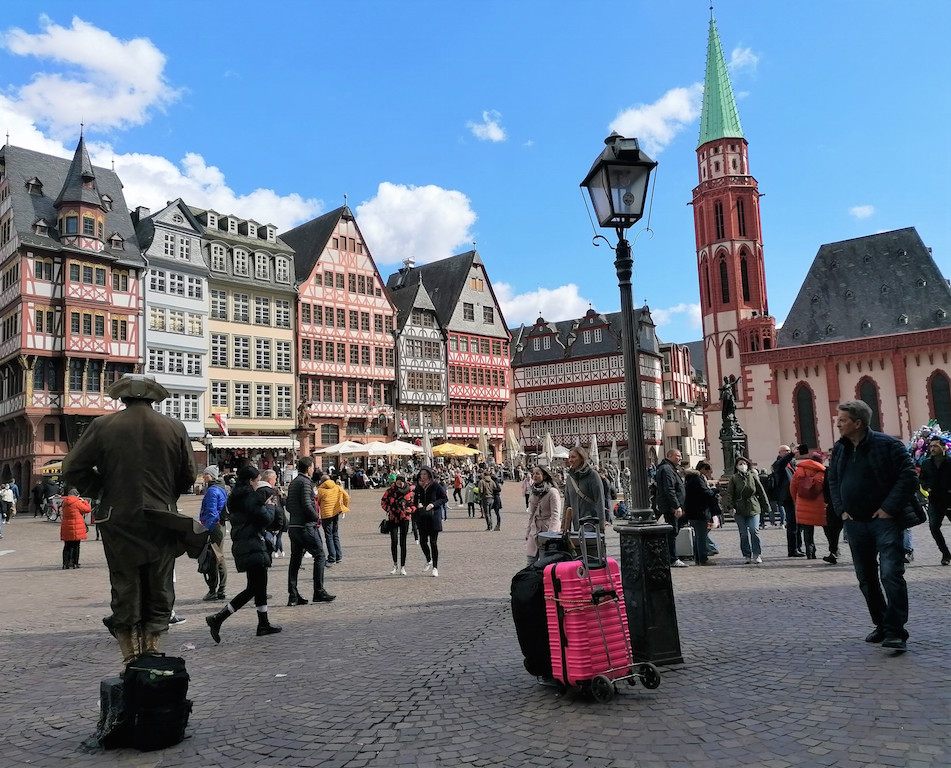
When the interview was over, I went to the Palmengarten as suggested by the interviewers. The quiet green oasis in the middle of the city, with its exotic palms and plants from all corners of the world and its small artificial lake, was the perfect place to cap off my first visit, convincing enough to make me plan my move should I get the job.
Living in “Mainhattan”
Frankfurt, also nicknamed “Mainhattan”, is a wordplay between the River Main (the city’s main river) and Manhattan, the famous New Yorker borough and its skyline. Others also call it “Bankfurt” alluding to the many banks and financial institutions operating here, though I think I hear (and personally prefer) the former nickname more often.
Frankfurt is not the place you move to because you like it straight away. However, work in certain industries, particularly finance, banking, sustainable investment research, and multinationals have their offices in this big city.
After a year and a half of exhausting train commute first from Aachen to Frankfurt then from Cologne to Frankfurt, I knew that the more logical next step was to live closer to where work was. My career eventually chose where I should live. We moved to Frankfurt in summer of 2019, on a sweltering 30-degree Celsius hot day, a warm welcome that marked the beginning of my life as a resident of this city.
The quiet green oasis in the middle of the city, with its exotic palms and plants from all corners of the world and its small artificial lake, was the perfect place to cap off my first visit, convincing enough to make me plan my move should I get the job.
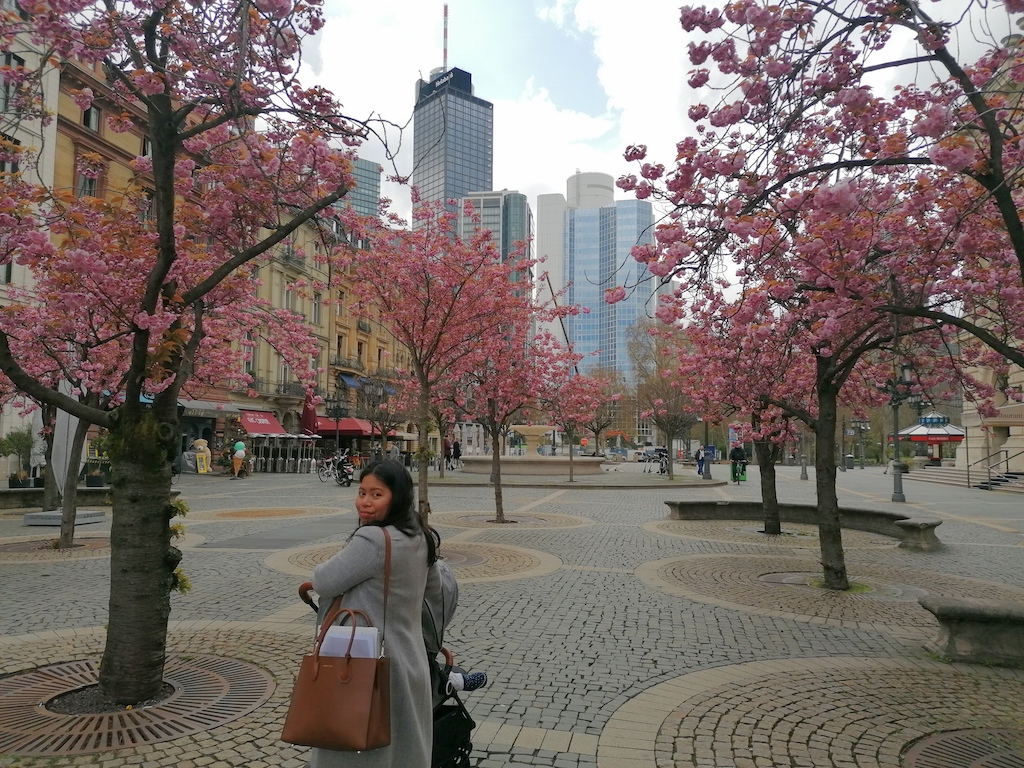
Life here so far has been wonderful. With the added challenge of the COVID-19 pandemic, I can’t imagine spending my time locked down elsewhere. While we did have the usual restriction similar to other places in Germany, I could still enjoy walks around a nearby river and the many parks near our neighborhood. During the peak of the restrictions, getting out of the house and enjoying a patch of green space, and fresh air, spelled freedom and helped cope with the burden of not having a lot of social contact with family and friends.
Frankfurt’s international flavor
I could think of several reasons why Frankfurt attracts workers from various parts of the globe. The city is very international, and like Berlin, Hamburg and Munich, it is common to hear other languages spoken in the street. According to Frankfurt am Main’s official website, the city is home to more than 170 nationalities. I myself work with mostly non-Germans, while my daughter goes to nursery along with nine other toddlers with mixed backgrounds. In the area where we live, social integration is so evident that one could hear foreign languages spoken in the playground area at the same frequency as German.
Locals have such a high awareness and respect for other cultures, so one easily feels at home here. As a financial hub, seat of several major banks, and the European Central Bank, Frankfurt does attract a certain demographic of expats.
The central airport is also located in Frankfurt, which makes traveling in and out of the city a breeze. It also offers a good variety of cultural events, and the city boasts of its trade fair (“Messe”) since the 13th century, making it the oldest in the world. Apart from festivities that celebrate art, books, music, food, wine, Ebbelwoi (apple wine) and “Grüne Soße” (a cold sauce made with seven specific herbs), there are also activities for families with children- science and cartoon museums, the many areas in the city’s outskirts such as the Taunus with lots of green and nature, not to mention the many playgrounds and parks in the city itself. For those who like white wine, Riesling vineyards in the Rheingau and Mosel area, combined with a nice hike, also make for nice day trips from Frankfurt.
The city is home to more than 170 nationalities. I myself work with mostly non-Germans, while my daughter goes to nursery along with nine other toddlers with mixed backgrounds. One could hear foreign languages spoken in the playground area at the same frequency as German.
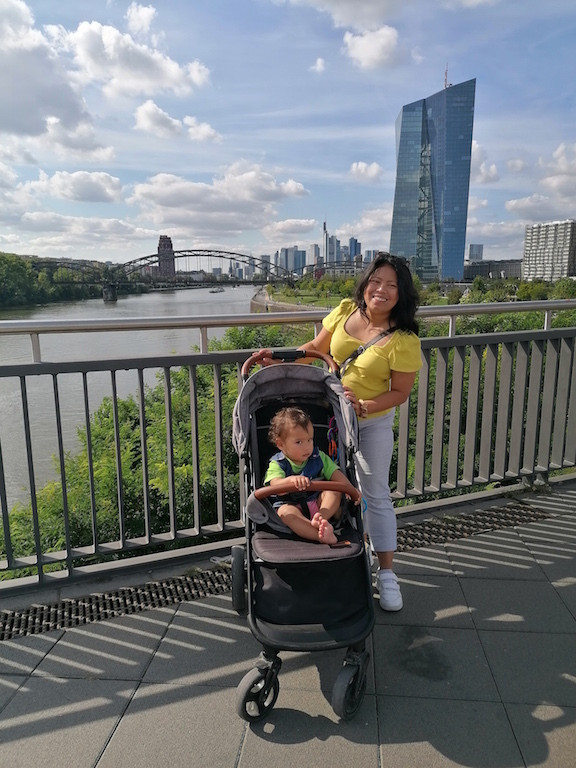
Costs of living and German bureaucracy
Of course, expat living in Frankfurt also has its drawbacks. Frankfurt figures among the top three most expensive cities in Germany based on cost of living. With high rental costs, a lot of people often prefer to either live in the suburban areas or nearby cities. Public transportation is generally reliable. However, German trains, once deemed as the most punctual on the planet, are unfortunately not as such anymore and can have all sorts of issues that cause delays.
One common theme among expats (and Germans, too!) is the never-ending fight against the country’s bureaucratic system, which trickles down to the federal and state level. There is a process for everything and a lot of paperwork almost at every stage- from changing addresses to applying for parental allowance (LOTS of documents required!), to applying for a spot at daycare, to applying for residence permit and consequent extensions. These processes take a lot of time and patience, so be warned!
Another question I often get asked is whether the city is safe. Like other big cities, it has its fair share of petty crimes, mostly theft and drug related. I would not venture alone, for example, to go to certain side streets near the central train station, where drug-dealing and prostitution are rampant. I usually avoid going to very crowded places such as the train station and the shopping area in the city center. If going there cannot be helped, I often make sure I have my eye on my bag and wallet the whole time, and not to walk around with my phone in hand.
There is a process for everything and a lot of paperwork almost at every stage. These processes take a lot of time and patience, so be warned!
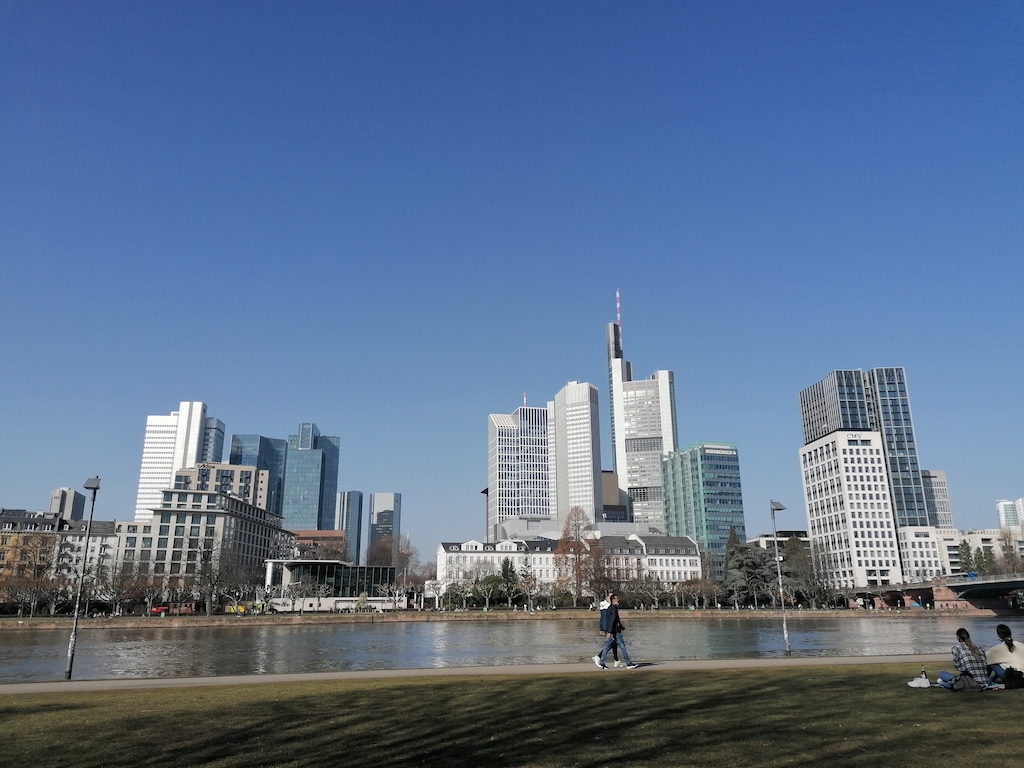
Green and sustainable
Adapting to life here in Frankfurt has been quite flawless so far. I particularly like how the city tries to maintain more green areas than the buildings themselves, prioritizes the environment and sees the importance of nature for its residents’ sanity. It was, after all, named the Most Sustainable City in the 2015 Sustainable Cities Index and was a founding member of the Climate Alliance of European Cities in 1990 and 2014. If you ask me, this regard for the environment and a rooted sense of care and appreciation for nature is probably one of the main reasons (amongst several others) why I would always choose to live in this city.
Must visit in Frankfurt
Palmengarten is one of the two botanical gardens in Frankfurt with 50 acres of tropical trees, orchids and ferns. You can spend a day here exploring its collection of exotic plants. Entrance fee is €7 for adults.
Day trips from Frankfurt
Take a train from Frankfurt Main train station to Cochem to enjoy the vineyards and wine selection of the Mosel Valley. Train tickets start at €20.
This article was first published in TFEM Summer Issue 2022 under the title “Settling down in Mainhattan. The web version is slightly modified.
What's Your Reaction?
Henzy Manaligod Richter is an ESG (Environment, Social and Governance) research professional who has long swapped her foreign language teaching and translation background for sustainability-related research. Apart from Filipino and English, she is fluent in Spanish, French, German and Portuguese, and has some basic knowledge of Italian and Dutch. While she does a lot of reading and analysis for a living, she would still like to have more time to read her books on sustainability, minimalism, and foreign language acquisition. On sunny weekends, she enjoys going out for long walks around Frankfurt's Green Belt ("Grüngürtel") area, hiking in and around the Taunus, and discovering castle ruins nearby. She lives in Frankfurt am Main with her husband, daughter and their growing collection of indoor plants.


